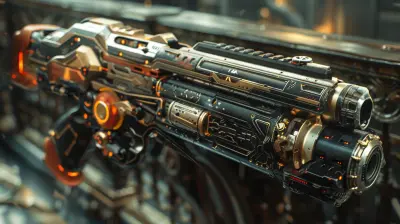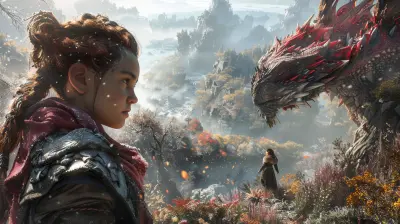How Tabletop Games Can Foster Teamwork and Cooperation
16 July 2025
Have you ever seen a group of grown adults collectively scream in frustration because someone rolled a one on a 20-sided die? Trust me, it’s a sight to behold. There’s something weirdly magical about a table full of people navigating quests, solving puzzles, or, let’s be honest, arguing over whose turn it is to bring snacks. Tabletop games aren’t just fun ways to pass the time; they are secret weapons for building teamwork and cooperation.
Before you roll your eyes and mutter, "Oh, it’s just board games," hear me out. These little cardboard adventures are loaded with opportunities to bond, strategize, and maybe even high-five someone after a narrow victory. So, grab your meeples and shuffle your cards because we’re diving into how tabletop games can turn any group into a dream team. 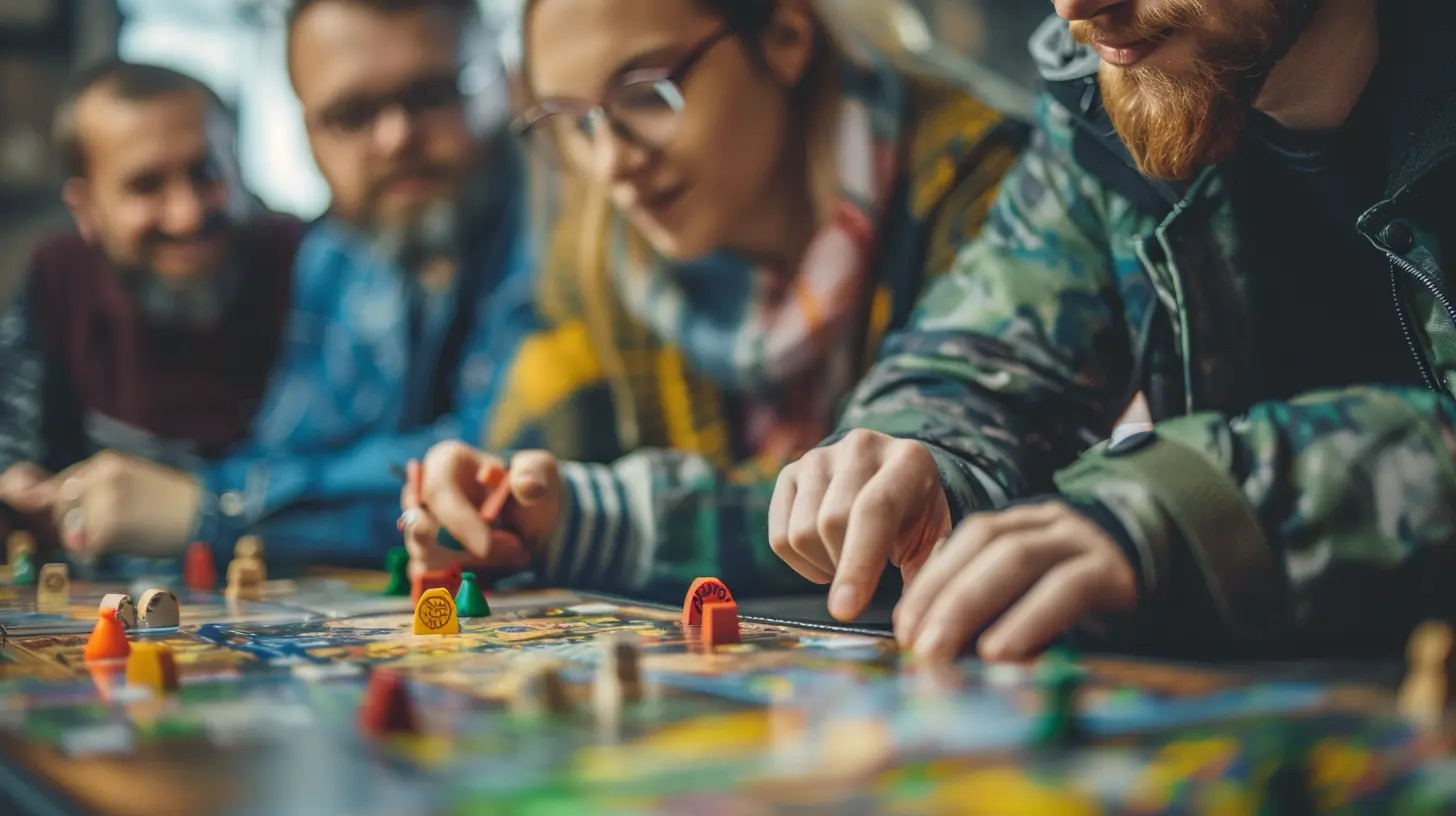
Board Games: The Ultimate Team-Building Exercise
Let’s face it, the corporate team-building retreat is not exactly anyone’s idea of a rip-roaring good time. Trust falls? Yawn. Icebreaker questions? Hard pass. But put a group of people around a table with a game like Pandemic, and suddenly, you’ve got alliances forming faster than you can say “outbreak in Tokyo!”Why Tabletop Games Work So Well
Think about it: when you’re playing a cooperative game, you’re forced to talk, plan, and work together to tackle a challenge. Everyone has to contribute something, whether it’s a strategic idea or just good ol’ comic relief. It’s like Survivor, except no one gets voted off the island (unless you're playing a game where everyone betrays each other, but we’ll get to that).Tabletop games have a knack for breaking down barriers between people. You could be working with your best friend, your coworker, or even your overly competitive cousin who won’t stop quoting rules from the manual. A game forces you to communicate, and hey, when you’re scrambling to avoid losing to a deck of cards, you kind of forget about any awkward small talk. 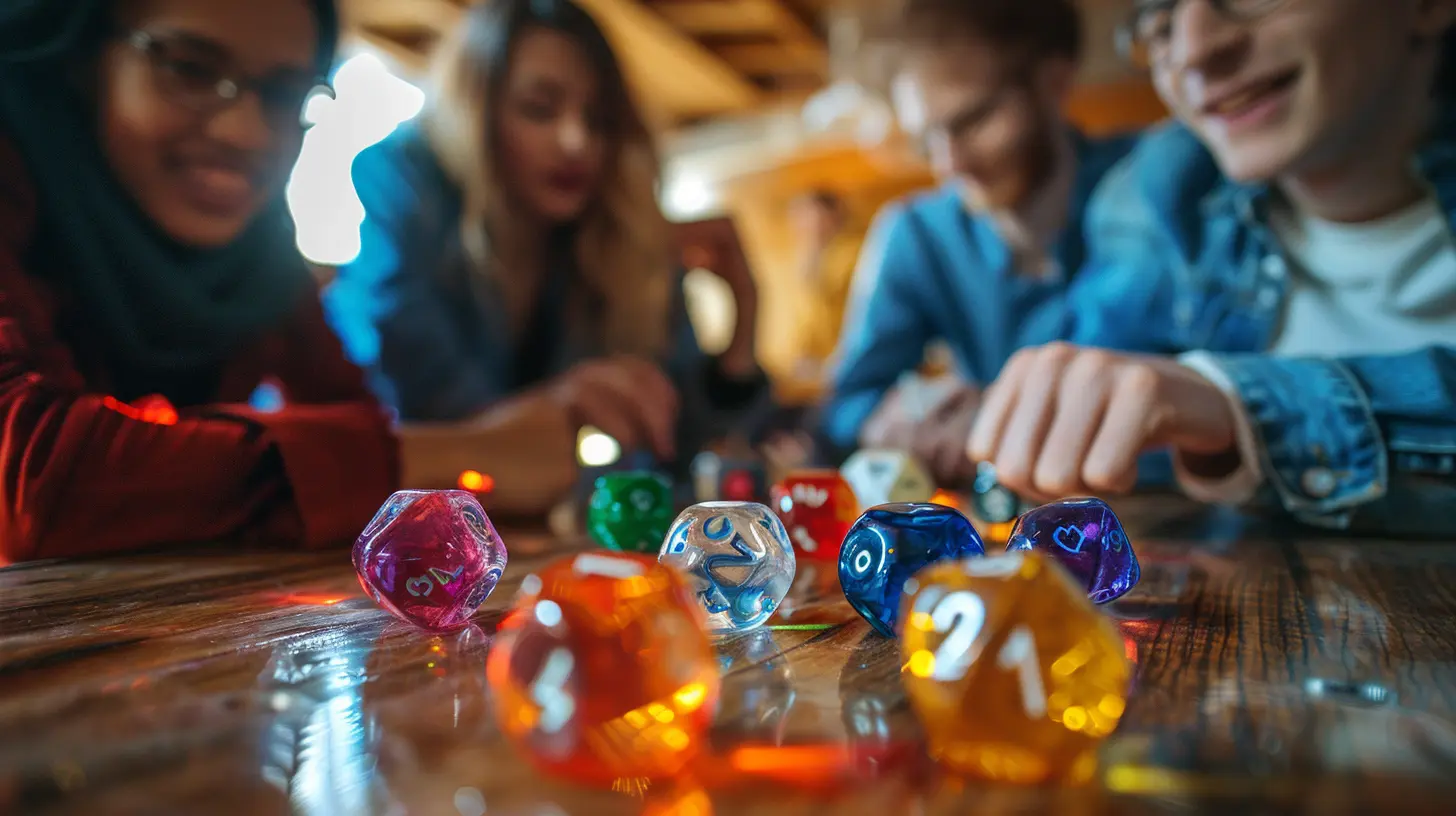
The Holy Grail of Cooperation: Cooperative Games
If you’ve never experienced the adrenaline-pumping chaos of a cooperative tabletop game, you are missing out. Unlike traditional games where players face off against each other, cooperative games pit everyone against the game itself. Yep, the game becomes the enemy. And spoiler alert: some of these games are brutal.Examples of Cooperative Games
One of the best-known cooperative games is Pandemic. In this gem, players work as a team of specialists fighting to stop global outbreaks before the world turns into a germ-infested nightmare. You’d better strategize well, though, because this game doesn’t pull punches.Or how about Forbidden Island, where you play as adventurers racing against time to collect treasures before the island sinks? It’s like being in an Indiana Jones movie with your closest pals. Everyone has to rely on each other’s unique skills to win. Plus, it’s way cheaper than hiring Harrison Ford.
Cooperative games teach players how to divvy up responsibilities and trust one another. For example, if your buddy is the Medic in Pandemic, you need to trust them to heal cities while the rest of the team focuses on other strategies. It’s like operating a well-oiled machine... until someone slacks off and forgets to save Asia. 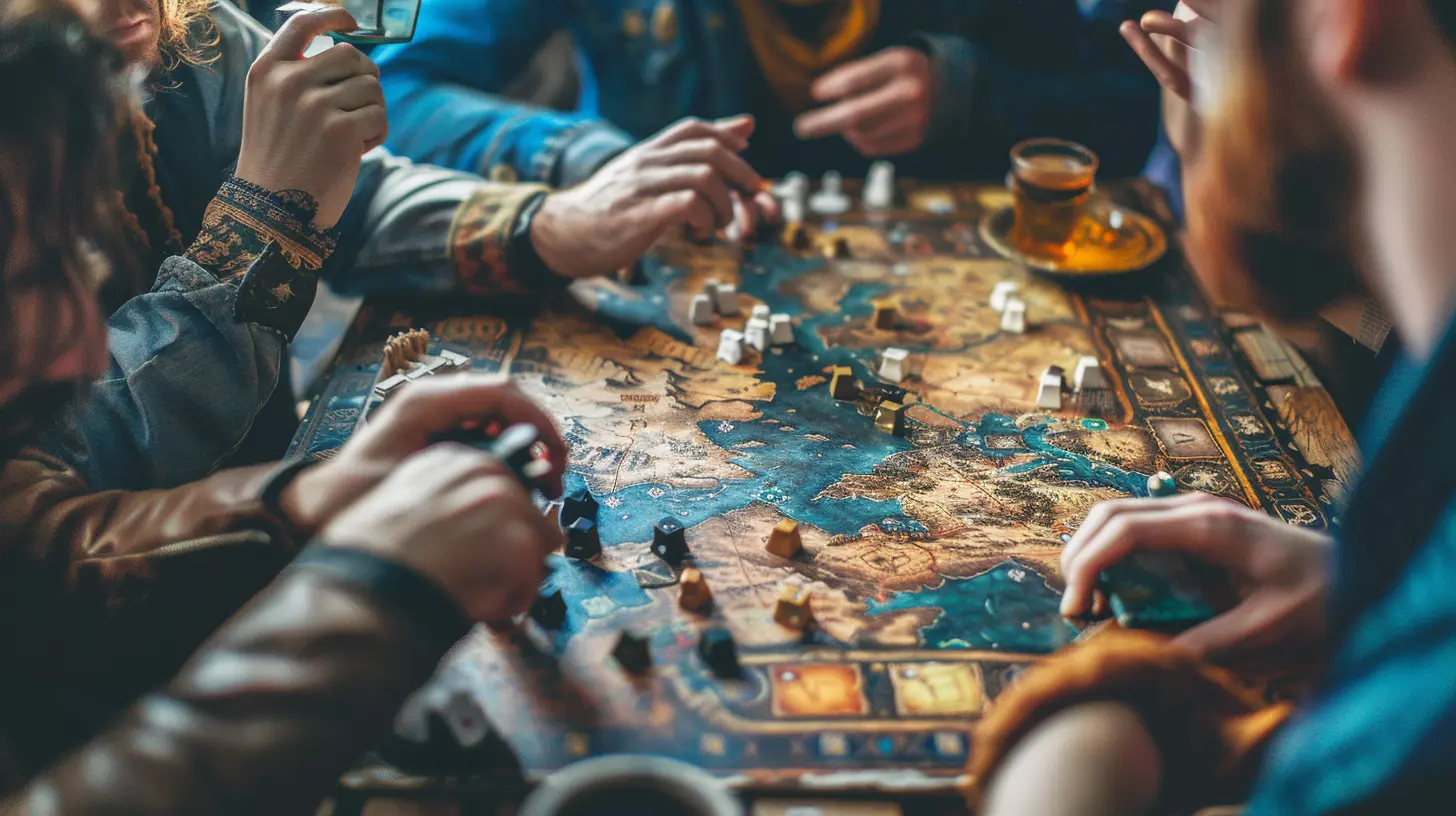
The Art of Communication: Say It Right, Or Watch It All Burn
Communication is the backbone of teamwork. Forget this one essential thing, and you might as well pack up the board now. Tabletop games thrive on player interaction, and the way you communicate can make or break a game night.When Talking is Winning
Let’s take Codenames as an example. Players are split into two teams, and the whole goal is to guess the right words based on your teammate’s one-word clues. Seems straightforward, right? Oh, but it’s not. You’ll get cryptic clues like “Pasta – 3” and suddenly be debating whether spaghetti or Italy is a better guess. Communication here isn’t just about talking; it’s about getting inside your teammate’s brain.Meanwhile, in games like Decrypto or The Mind, you learn how to communicate just enough without giving away too much. It’s a delicate dance of teamwork and ESP (and probably a little screaming). 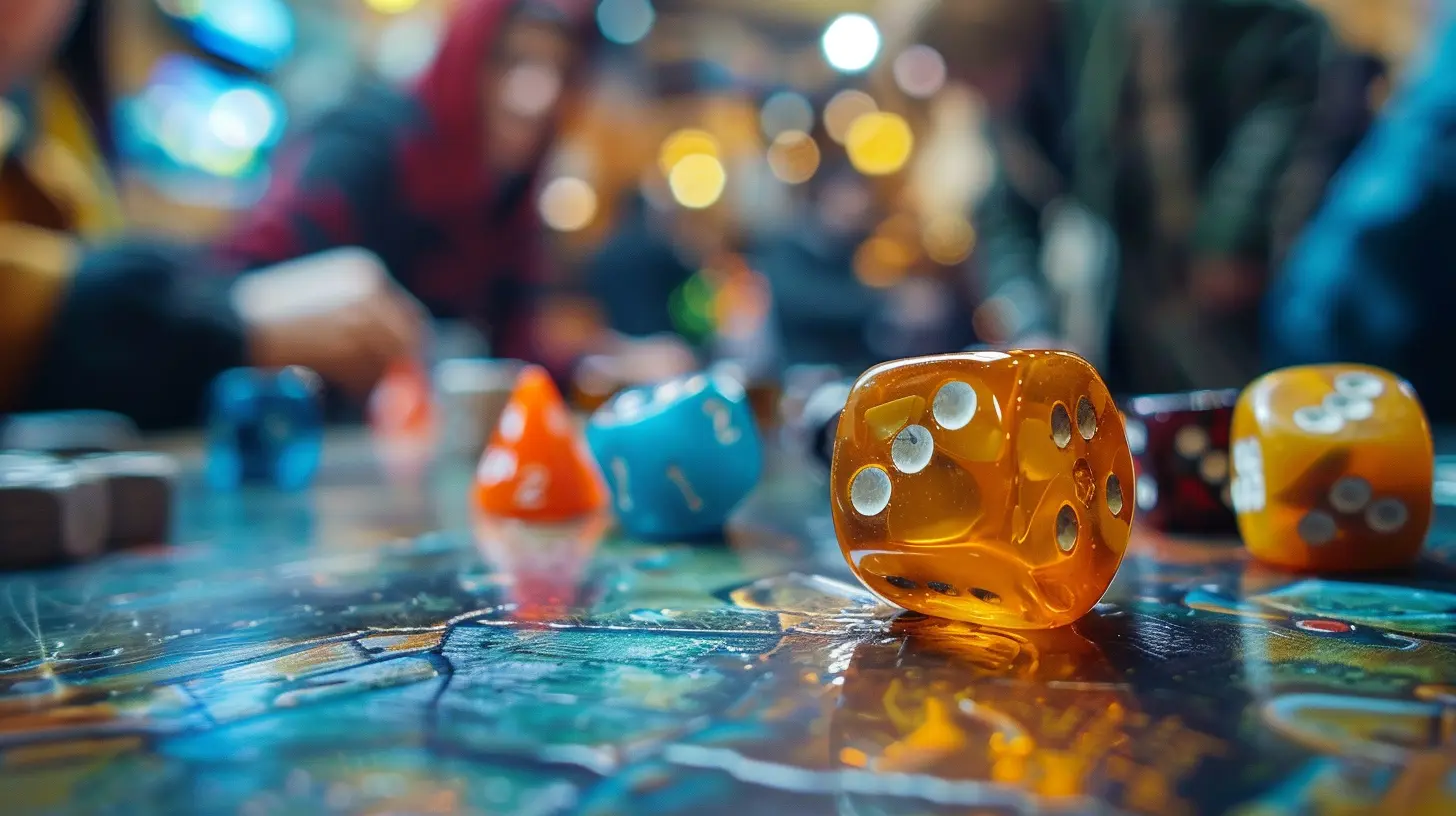
Conflict Resolution: How Games Teach You to Chill
Not every tabletop moment is sunshine and rainbows. Sometimes, someone miscalculates, a turn drags on too long, or somebody eats the last slice of pizza without asking. Conflict happens. But here’s the cool part—tabletop games often teach players how to navigate disagreements.Problem-Solving on the Fly
Take a game like Betrayal at House on the Hill, where players explore a haunted house only to find out mid-game that one of them is a traitor. Suddenly, the group is divided, and everyone has to deal with a very awkward game of hide-and-seek. These moments teach players how to handle surprises, adapt strategies, and maybe, just maybe, not throw the dice at their betrayer.By encouraging negotiations and compromise, games force teammates to focus on the bigger goal instead of petty squabbles. And hey, if you can navigate a heated debate about who gets to roll for initiative, you can probably survive a heated office meeting too.
Creativity Unleashed: Solving Problems Outside the Box
You know those moments when you’re stuck in a game and someone blurts out the most random, improbable idea—and then it works? Tabletop games are like creativity boot camps, forcing teams to think outside the box and find unconventional solutions.Games That Reward Creativity
Want a perfect example? Dungeons & Dragons (D&D), the tabletop role-playing game of your geekiest dreams. In D&D, players create characters and work together to conquer challenges set by the Dungeon Master. If someone thinks it’s a good idea to charm a dragon with interpretive dance, the rest of the team has to roll with it (or convince them it’s a terrible idea).This flexibility and willingness to adapt to others’ crazy plans fosters a sense of camaraderie. Sure, your party might fail trying to cross that haunted swamp, but at least you’ll fail together, laughing all the way.
Building Empathy: Walking in Someone Else's Shoes (Literally)
If you’ve ever played a role-playing game, you’ve probably had the surreal experience of pretending to be someone else—a warrior, a wizard, maybe even a sentient hamster. Role-playing is more than just make-believe; it’s a lesson in empathy.Why Empathy Matters in Games
When you step into a character’s shoes, you’re forced to think about what they want or need. How will your character’s decisions affect the rest of the team? Taking on different perspectives can help players build understanding and compassion, which translates surprisingly well into real-world teamwork.Trust and Team Dynamics: Can You Count on Them?
Nothing builds trust like handing someone a winning move—or a ticking time bomb—and praying they don’t mess it up. Tabletop games often involve a level of blind trust, especially in games like The Resistance or Werewolf, where one wrong move can cost the entire team.The Trust Factor
In The Resistance, players work together to complete missions while trying to sniff out traitors in their midst. It’s nerve-wracking but incredibly fun. And let’s not even get started on games like Among Us, which have turned friendships into detective dramas.Games like these test your ability to read people, trust your instincts, and manage team dynamics under pressure. You’ll know pretty fast who’s got your back and who’s planning to sabotage your next move.
Lessons from the Tabletop: Why It All Matters
Here’s the thing: tabletop games aren’t just games. They’re like little microcosms of life, where teamwork, communication, and creativity all get tested under varying levels of stress and laughter.Whether you’re slaying dragons or arguing about how to stack trains in Ticket to Ride, the skills you gain from these games will sneakily carry over into your daily life. Who knew that saving the world from imaginary diseases could make you better at collaborating on a group project?
Final Thoughts
At the end of the day, tabletop games are more than just a nerdy hobby. They’re a fun, low-pressure way to bring people together, get them working as a team, and maybe even teach them a thing or two about life. Besides, who wouldn’t want an excuse to shout “Eureka!” when your clever plan actually works?So, the next time someone suggests a game night, don’t roll your eyes—roll the dice. You might just walk away with a stronger team (and maybe some leftover pizza).
all images in this post were generated using AI tools
Category:
Tabletop GamesAuthor:

Stephanie Abbott
Discussion
rate this article
2 comments
Zarenith Parker
Great insights! Tabletop games truly enhance teamwork skills while providing fun and engaging social experiences.
November 20, 2025 at 5:59 AM

Stephanie Abbott
Thank you! I'm glad you found the insights valuable—tabletop games really do offer a unique blend of fun and teamwork development.
Isadora Pacheco
Tabletop games are a great way to build teamwork and cooperation skills while enjoying memorable experiences with friends.
August 3, 2025 at 3:42 PM

Stephanie Abbott
Absolutely! Tabletop games not only enhance teamwork and cooperation but also create lasting memories with friends.
